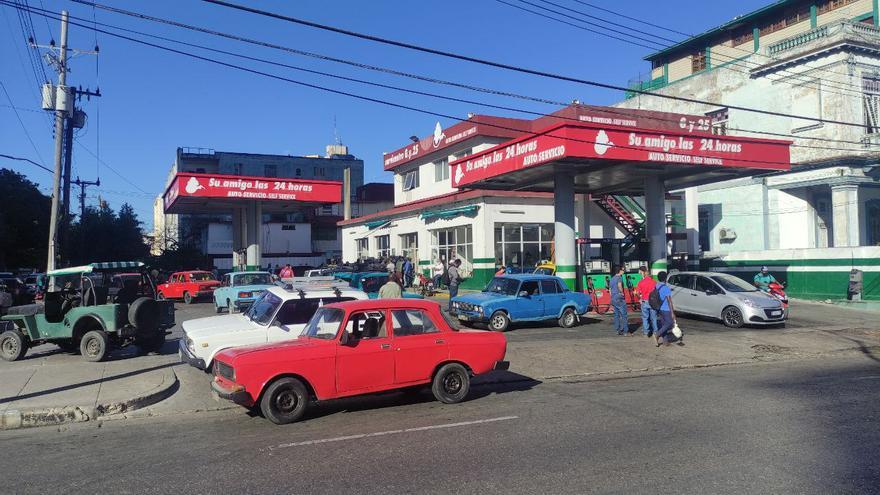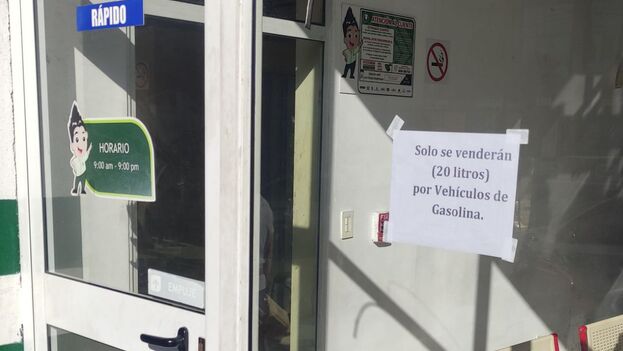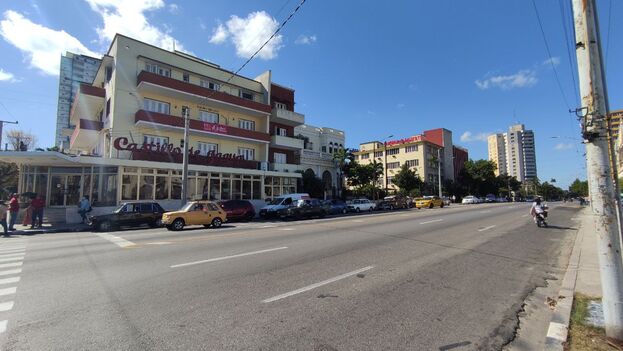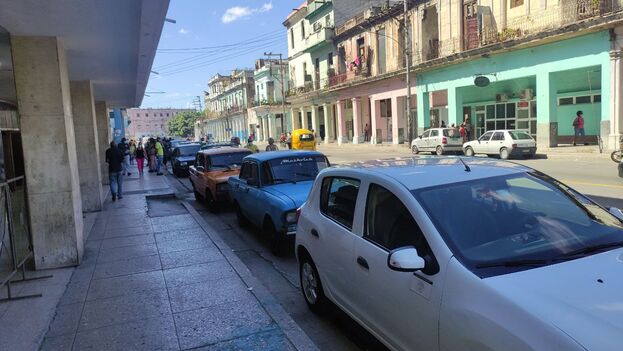
![]() 14ymedio, Juan Diego Rodríguez, Havana, 22 March 2022 — The control of the sale of fuel in Havana began this Tuesday without prior notice. As this newspaper had anticipated, the authorities planned to extend the regulation established in Matanzas from Sunday to the entire Island, but it has been sooner than the employees themselves expected.
14ymedio, Juan Diego Rodríguez, Havana, 22 March 2022 — The control of the sale of fuel in Havana began this Tuesday without prior notice. As this newspaper had anticipated, the authorities planned to extend the regulation established in Matanzas from Sunday to the entire Island, but it has been sooner than the employees themselves expected.
A sign surprised customers at the Cupet on 25th and G, in Havana’s Vedado neighborhood: “Only 20 liters per gasoline vehicle will be sold.” As for diesel, there simply isn’t any, service station employees inform 14ymedio.
The line, first thing in the morning, occupied more than ten blocks, although it was only visible on G Street, between 23 and 25, and on 23, between G and F. To be able to see the rest, one has to travel on the smaller streets. As the authorities do with the sale of the products most in demand, they had arranged the line by dividing it. Once on F Street, it was glimpsed that it turned to the right on 27th, and there was no end in sight.
“I had never seen anything like this in my life,” a local resident told 14ymedio. “They hid the line, as they do with the sale of chicken and hotdogs.”
Inside the gas station, a truck driver begged one of the Cupet managers to sell him more than the regulated 20 liters, because with that amount he wouldn’t solve anything. “If it were up to me, I would give you forty, but I can’t disobey the order,” responded the employee, who explained that the establishment found out about the rule that same day, through “a piece of paper… If you want, go complain to the provincial government,” he told the driver.

Another Cupet employee reported that the day before, when this newspaper confirmed the lack of fuel at smaller service stations, the tension in the line of customers waiting to be served rose to the point of shock.
The same trend was observed in the Infanta and San Rafael gas station, in Centro Habana: customers begging at the doors of the establishment and an endless line of cars, which turned into Zanja Street and merged with other lines to buy food.
In the Cupet on Zanja, also in Centro Habana, the presence of people waiting on foot, with a plastic container in hand, was striking.
This Tuesday, the lines did not “discriminate”: there were the same taxis, trucks, motorcycles, private cars, state cars and – proof that the problem is serious – vehicles from the Ministry of the Interior.
Meanwhile, on the street the shortage of fuel begins to be noticed. This Tuesday, it is almost impossible to take a transport in the capital, and the situation is expected to worsen in the coming days.

Without fuel, in addition, the distribution of food and other essential products is at serious risk.
The official press announced on Sunday that the regulated sale of fuel for individuals in Matanzas would begin that same day , but it remains silent for the rest of the country, as does the Government.

There, the decision, as explained by Geobel Quintero Hernández, a provincial government official, was due to “the existing difficulties in the coverage of these resources in said establishments.”
Without giving further explanations, the authorities assured that the limits on sales are not a consequence of a fuel deficit in the country, “but rather that it responds to the logistical assurance for its distribution.”
They also explained that the state-owned company Transcupet, in charge of supplying the establishments, currently works with 62% of its vehicles, so that “they must give priority to the diesel that the generators need, which is extremely necessary at the moment due to the crisis. temporary energy that the country suffers.”
____________
COLLABORATE WITH OUR WORK: The 14ymedio team is committed to practicing serious journalism that reflects Cuba’s reality in all its depth. Thank you for joining us on this long journey. We invite you to continue supporting us by becoming a member of 14ymedio now. Together we can continue transforming journalism in Cuba.
